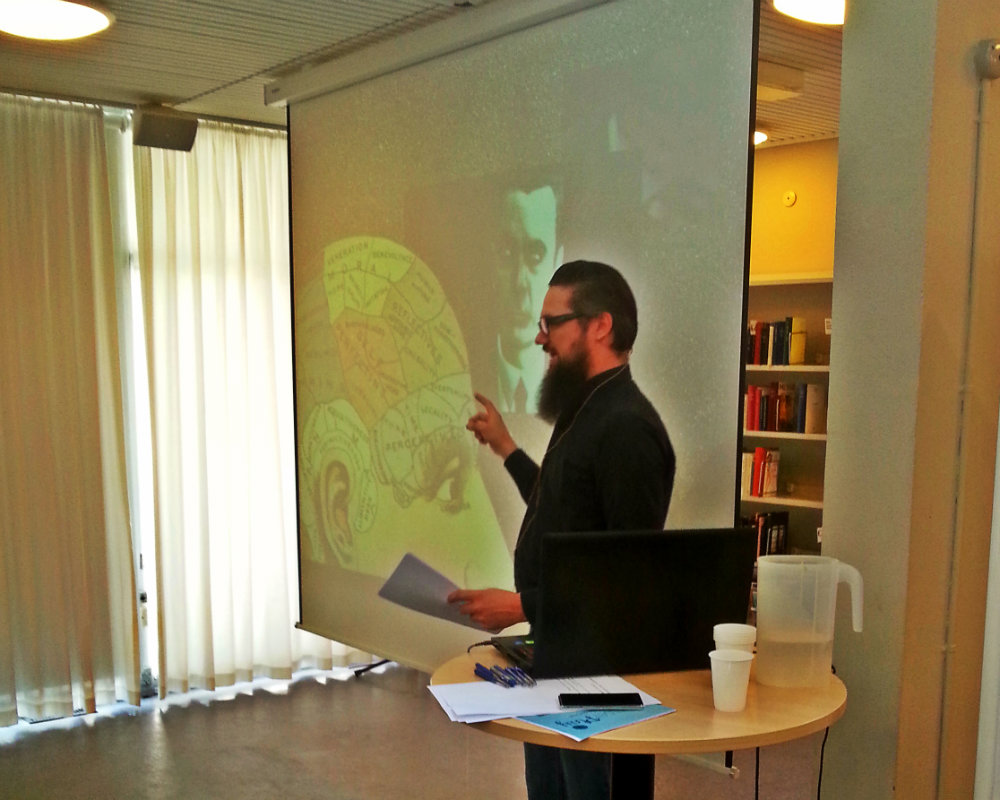At CounterPlay ’14, Jesper Krogh Kristiansen did a presentation about the way we write and talk about games.
Traditionally, there’s been a heavy focus on technology when writing about video games, but this is not really what most people really care about (some people do, and that’s ok).
Most of us would probably rather talk about all the things we experience when playing games, or how games allow us to explore the most amazing worlds, or the ways in which we connect with games and other people on an emotional level, or how games make us consider the world and our lives in new ways.
Why don’t we just go and do this, then?
A big part of this is probably the perceived lesser cultural value of games compared to, say, literature, film and theater. Even today, we often find ourselves in situations, where we need to overcome mental and cultural barriers to properly talk about games without feeling a bit out of place.
Another reason might be our lack of knowledge and language about games. Basic knowledge about stories, about literature, about film is everywhere around us, and we are introduced to theories in these domains at an early age. This is not the case with games (yet).
These things are obviously changing, as more people play games, and more people care to tell what they experience, think and feel.
Take Tom Bissell’s account of “doing cocaine and playing video games – usually Grand Theft Auto IV“:
What have games given me? Experiences. Not surrogate experiences, but actual experiences, many of which are as important to me as any real memories. Once I wanted games to show me things I could not see in any other medium. Then I wanted games to tell me a story in a way no other medium can. Then I wanted games to redeem something absent in myself. Then I wanted a game experience that pointed not toward but at something. Playing GTA IV on coke for weeks and then months at a time, I learned that maybe all a game can do is point at the person who is playing it, and maybe this has to be enough.
Or Manveer Heir‘s touching & inspiring microtalk at GDC 2013(see the transscript):
And by the end of Papo & Yo, I was sobbing profusely, unable to contain my emotions. I was a grown man breaking down in his living room. I’ve never experienced that gravity of emotion from media. You’d have thought I’d just found out someone close to me had died. And that’s because it sort of happened. Papo & Yo didn’t make me cry because of the arc of narrative, or because it timed emotional music right. It made me cry because it asked me to do something seemingly simple: let go. And then it made me let go. Not the character in the game, it made me, Manveer, let go.
It made me remember my relationship with my estranged younger brother, the anger and hatred I had towards him for years, and remember his subsequent suicide in late 2011. It made me remember the difficulty I had consoling my parents as the only surviving child. It made me remember how sorry I felt for him because he suffered from bipolar disorder, a mental disease that often made him do and say things that ended our relationship. It reminded me how unwilling myself and society was to let him off the hook despite knowing this. Papo & Yo reminded me of something I already knew but have struggled with: the need to let go of anger, the need to forgive and look towards the future, the need to grow as a person and become better every single day, lest I be destroyed by a monster inside of me.
Or Cara Ellison’s thoughtful piece about how “Castles In The Sky” evoked feelings of childhood, good and bad:
If this were a platformer, perhaps this would be boring. But this isn’t really a platformer, so much as a bedtime story. This is more like taking a journey back into your childhood, where when you looked up at the sky, you thought clouds might be able to sustain your weight, if you wanted. When clouds were reachable platforms for all your idle thoughts.
[…]
There’s a rush of old feelings for me in that moment where those words clash with a hot air balloon rising proudly from behind the cloud cover. My heart swells. I don’t recall primary school; I’m not quite sure what happened but I have blocked out the memory of that time. But the game’s idea that all lost balloons might find new owners is an allegory that hauled up the hopes that I think my ten year old self had once. I think perhaps ten year old me wanted to think that all lost balloons are found by someone, just like all little boys grow up, except one.
Stories like these are interesting and fascinating in their own right, while also helping us understand better how games can mean much more to us than simply entertainment (mind you, there’s nothing wrong with entertainment).
During his talk, Jesper asked the audience to share their own experiences from playing, and here are all the stories that we collected (download here):
I’m pretty sure, that this topic is going to be a central part of our ongoing conversations around games and play!
Do you have a story to tell?
Share it in the comments!

Leave a Reply